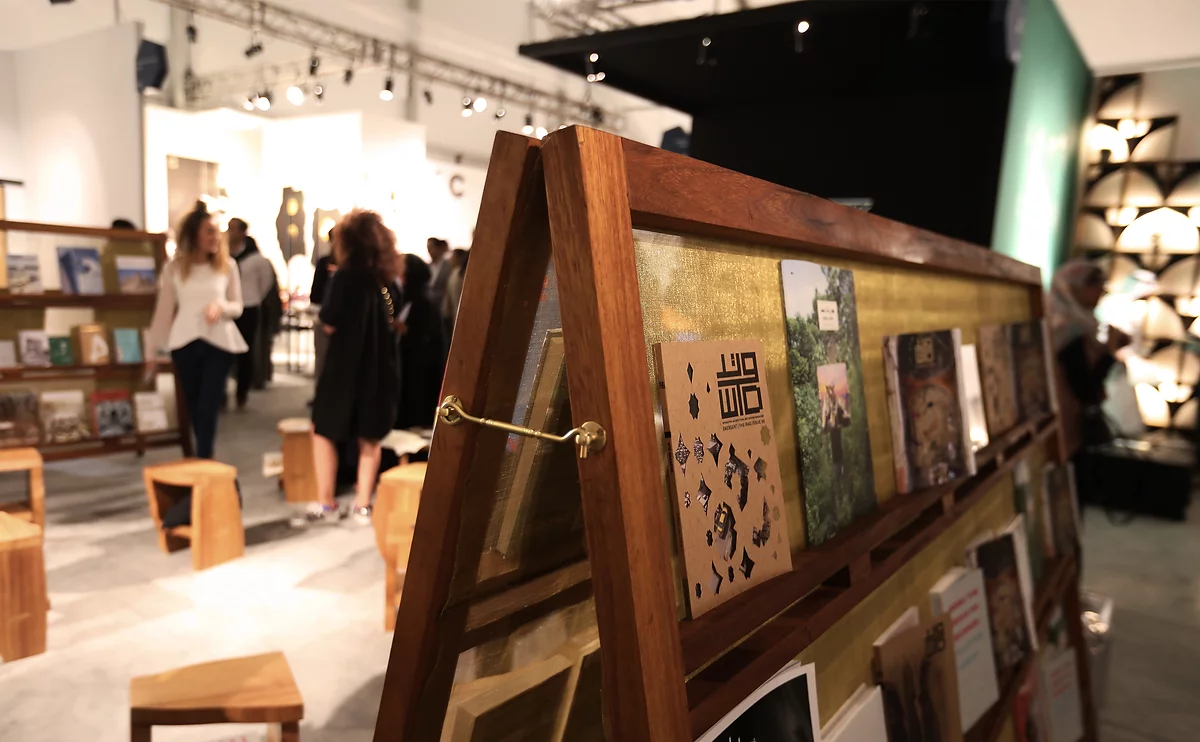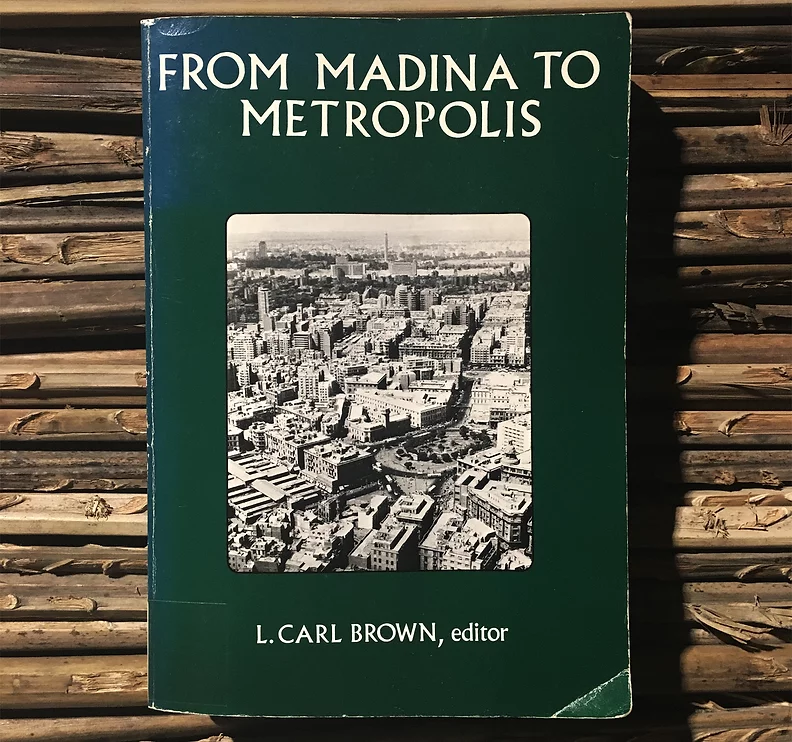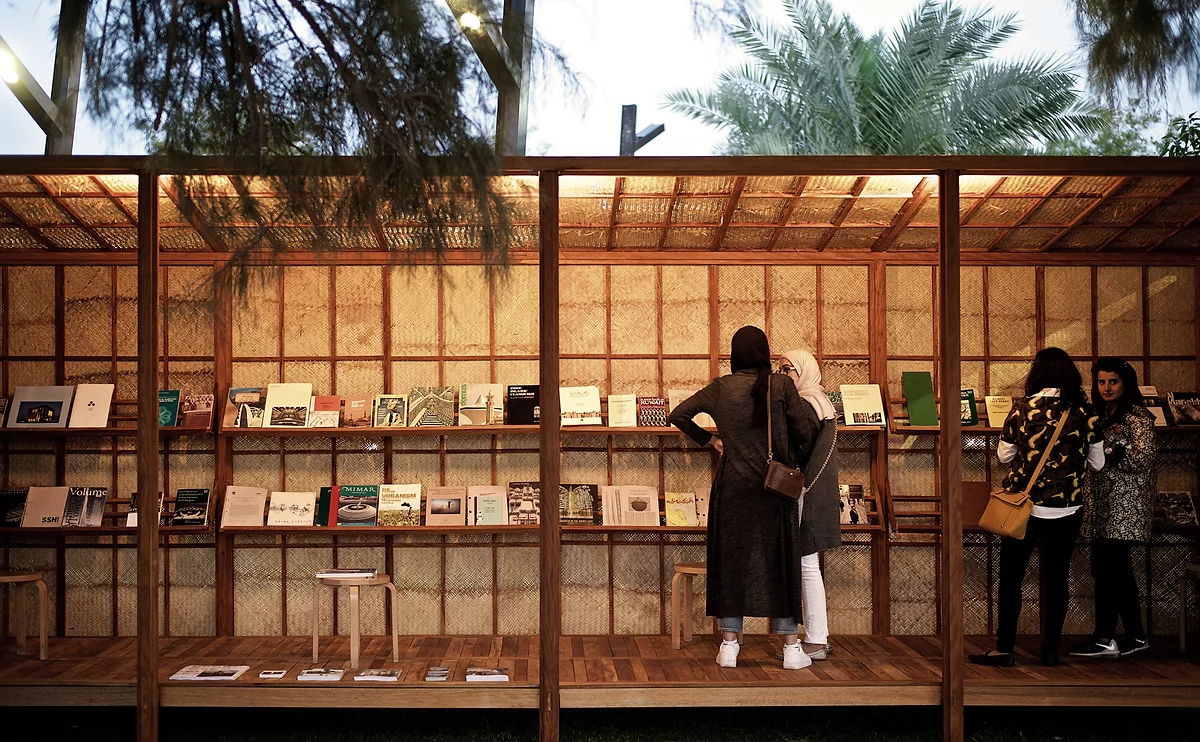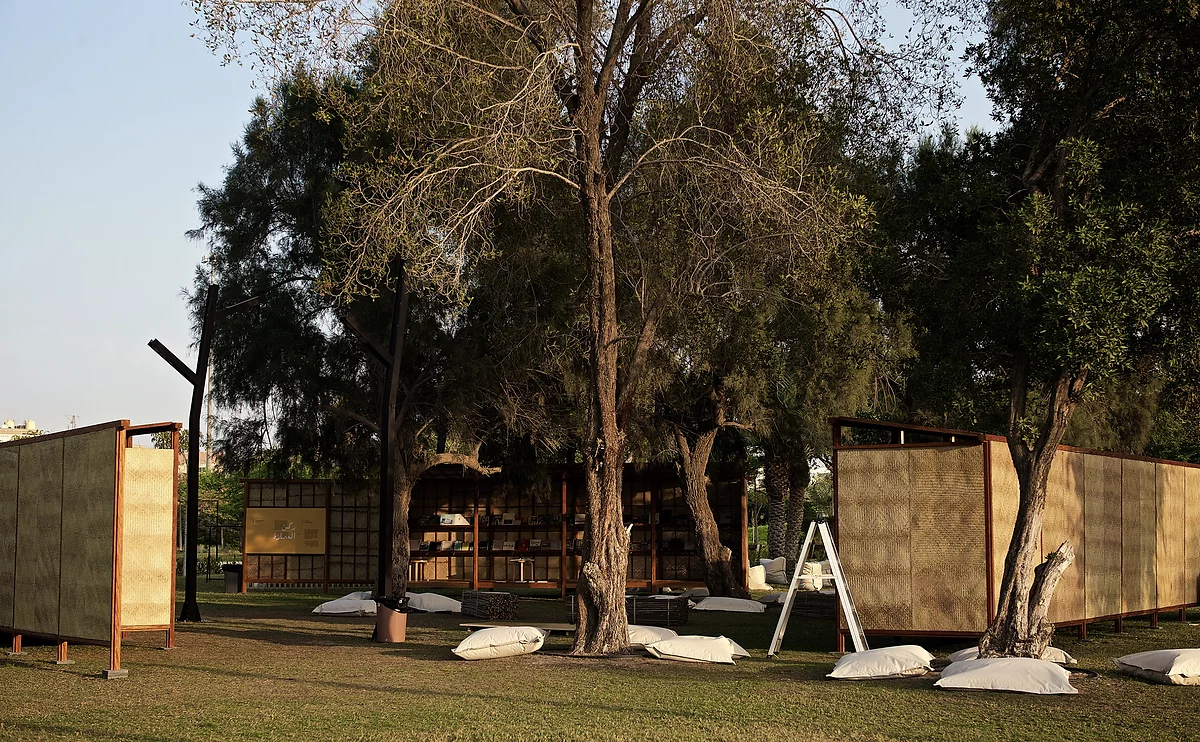
Fatma and Reem are collectors on a quest to preserve and disseminate the forgotten knowledge of the East, “an ancestral knowledge”, from Qatar and the rest of West Asia and North Africa. It is a collection that “aims to inspire you to visit and explore this region” by offering “nuances, complexities, and layers of information,” not found in contemporary guidebooks and the internet.


The sisters trace their love of books to their childhood. “Story time in the house was not novels, or fairy tales,” remembers Reem. “It would be different chapters of the encyclopedia. And we really just loved having it there as a reference. We grew up with them. It was like a small library of knowledge.” And it is from this small home library, that their book collection grew, first filling their rooms, then spilling over into the common spaces of their home, before being categorized and compiled as the Atlas Bookstore in 2015, which opened in the Sheraton Hotel.
Their aim in this curated collection, ‘Botanical Collectibles’ is to “reclaim the narrative of knowledge”: where knowledge comes from and in which direction it flows. “We always had this perception, and the educational systems we grew up in supported this view, that knowledge was transferred from the West, that our existing knowledge is either not up to par, or not recorded, or it doesn’t resonate in the modern world,” explains Reem. So, our bookstore and this collection exhibited at VCUarts Qatar, aims to expose the existing knowledge and heritage of the region, make it accessible, show its value and use in today’s evolving world. “We thought knowledge was meant to come in one specific way – scientific journals or books and so on, and that the region did not have any knowledge as such,” says Reem. “But historically, and traditionally, knowledge was disseminated in our region through other forms, such as poetry and oral history. So this knowledge did exist and it still does exist, just in different forms.” One of the books in the exhibition addresses exactly this poetic knowledge of the native flowers of Qatar and how to decipher it for modern use.
These stereotypes about the lack of valuable local or regional knowledge extend specifically into the natural sciences. There is a general perception about the region that “it’s a desert and therefore it is barren,” both literally and figuratively, explains Fatma. But, “the desert is not flat. The desert is not the same in all parts of the region. There’s so much richness and so much to learn from the typology of the desert.” The historical and ancestral knowledge about the ecologies of the region held among the books in this collection are still relevant now, if not more relevant for all of humanity, for understanding the very complex balance of the desert ecosystem, heat, water systems and plant life.

Atlas Bookstore is not only “making bookstores relevant again,” but it also symbolizes the evolving relationship between people and their environments – both built and natural. “The connection we have to these plants has diminished. And that’s very telling that we have reached a point where we are completely blind to our environment, that the beauty within it is truly hidden to us,” say the collectors. The books and prints in this exhibition stand as tangible witnesses to this human process of losing touch. The knowledge was always there, but we’ve been blind to it. Our perception of time, land and space is evolving as we embrace the conveniences and fast pace of the digital, and Western-centric world. This collection asks the visitor to slow down and acquire knowledge about the land in a traditional way, by recapturing it through physical, archival books and records – both rediscovered and recovered – written by scholars in the region. It asks the visitor to restore their connection with the physical, natural world.
www.atlasbookstore.org
Atlas Bookstore was founded in 2015 by Fatma & Reem Al Sehlawi. In its first space at the Doha Sheraton Hotel, the bookstore offered a reference library and sold publications focusing on the architecture and urbanism of West Asia & North Africa. The bookstore performed as a research engine for different projects such as the Making Doha exhibition at the National Museum of Qatar. Specific selections of the bookstore’s collections have traveled to exhibitions in Kuwait, Bahrain, Dubai, and the Vitra Design Museum. The Atlas collection has since then expanded to, not only include the region’s built environments, but also the histories of its natural environments and their futures, which will be offered in the bookstore’s new space.
Reem Ibrahim Al Sehlawi is an Islamic environmental ethicist, researcher, and textile artist. She is the founder of SEAM Tailoring (2017) and co-founder of Atlas Bookstore (2015).
Fatma Ibrahim Al Sehlawi is an architect, urbanist, and beekeeper. She is the co-founder of Atlas Bookstore (2015) and Studio Imara (2017). Fatma has been leading the Qatar Blueprint project at the Office of H.E. Chairperson of Qatar Museums, planning the future of Qatar’s cultural activations and nation branding.